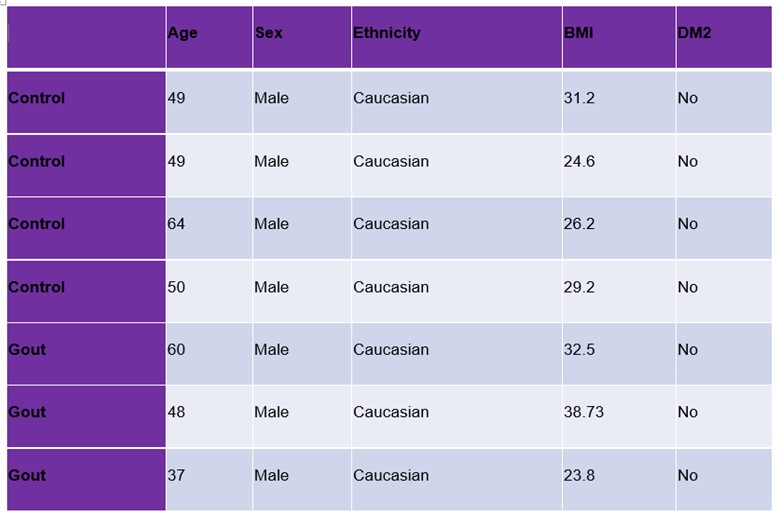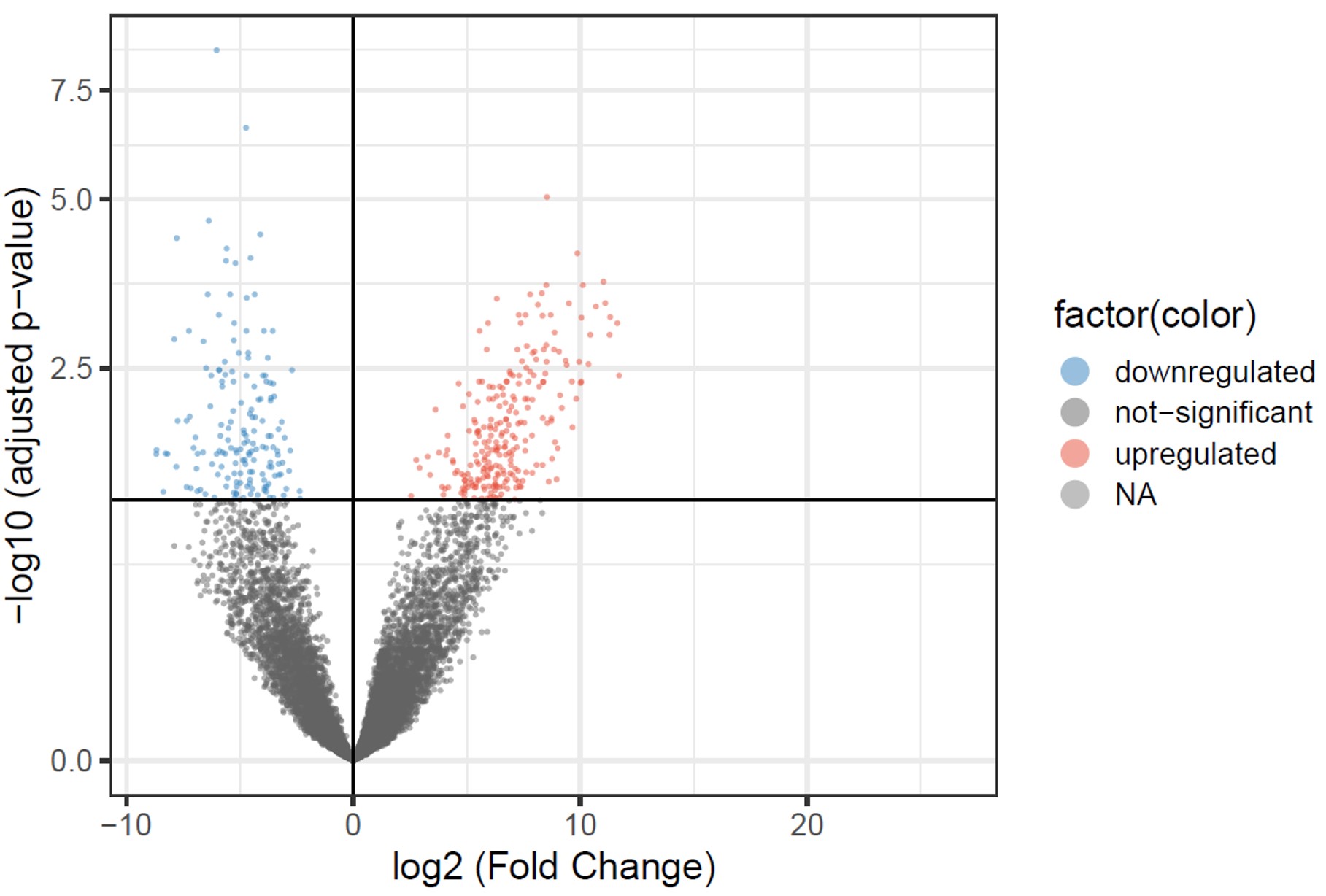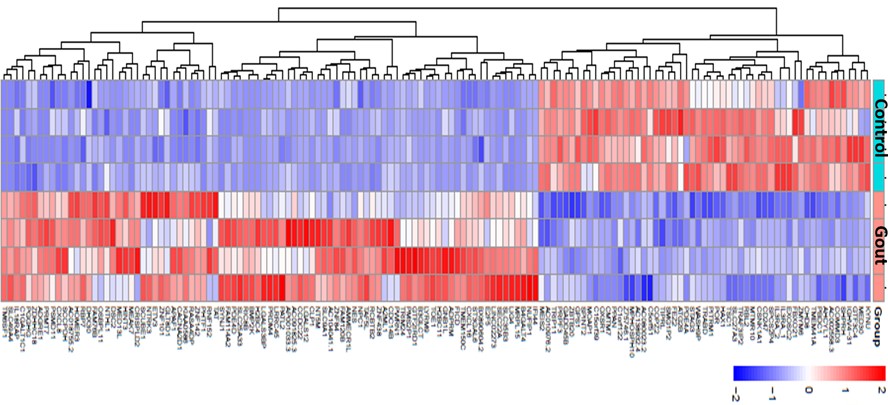Session Information
Date: Sunday, November 17, 2024
Title: Metabolic & Crystal Arthropathies – Basic & Clinical Science Poster II
Session Type: Poster Session B
Session Time: 10:30AM-12:30PM
Background/Purpose: Gout is the most common inflammatory arthritis and is associated with increased cardiovascular (CV) disease and cardiovascular mortality. Our prior studies have suggested that inflammation in untreated gout may contribute to vascular endothelial dysfunction as measured by brachial artery flow-mediated dilation, a validated metric of endothelial function and CV risk. We performed a CTSI-funded pilot study using brachial vein endothelial cell harvesting, a novel direct assessment of endothelial cell activation, in gout patients compared with non-gout controls to explore additional mechanisms of enhanced CV risk, and the relationship between gout, systemic inflammation, and impaired vascular health.
Methods: Subjects underwent endothelial cell harvesting and collection of venous blood for plasma. Endothelial harvesting was performed in the NYU Clinical Research Center using a standard 20-gauge angiocatheter inserted into the brachial vein using aseptic technique. Three 0.018-inch diameter J-shaped wires were advanced sequentially, 4cm beyond the end of the angiocatheter, to scrape venous endothelial cells from the intima. Harvested endothelial cells were processed for RNA extraction and pro-inflammatory transcript analysis. Endothelial transcript expression was assessed by RT-qPCR for expression of pro-inflammatory and activation.
Results: Eight subjects (four gout and four controls) were included in the final analysis. Demographics were similar between the two groups, except that gout patients had a higher mean BMI compared with controls. We observed a significant differential in the genes expressed in endothelial cells of controls compared with gout patients (Figure 1). There were 89 genes upregulated in gout subjects but not controls, and 55 genes upregulated in controls but not in gout patients. Transcripts upregulated in the gout subjects included several also observed in systemic lupus erythematosus, viral myocarditis, and hypertrophic cardiomyopathy gene sets, including CD86, TGF-b, and CASP9, all pro-inflammatory and/or pro-autoimmune proteins.
Conclusion: Based on harvested endothelial cells, gout patients appear to demonstrate a differential endothelial cell activation phenotype, potentially associated with inflammation and immunity, compared with non-gout controls. Whether this difference contributes to increased CV risk in gout patients deserves further study.
To cite this abstract in AMA style:
Toprover M, Shah B, Drenkova K, Pillinger M, Garshick M. Endothelial Activation in Gout [abstract]. Arthritis Rheumatol. 2024; 76 (suppl 9). https://acrabstracts.org/abstract/endothelial-activation-in-gout/. Accessed .« Back to ACR Convergence 2024
ACR Meeting Abstracts - https://acrabstracts.org/abstract/endothelial-activation-in-gout/



